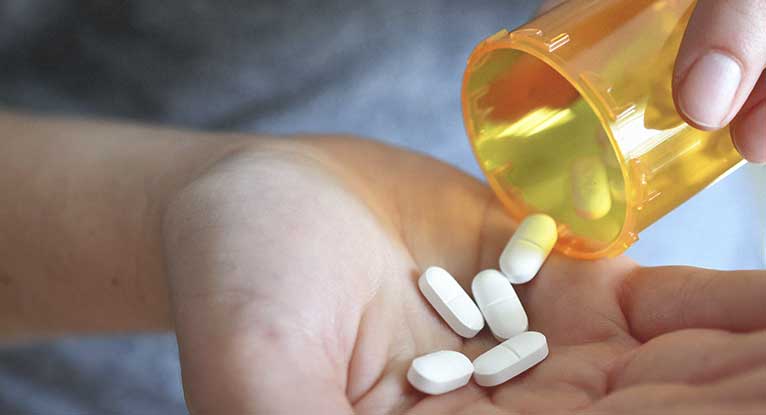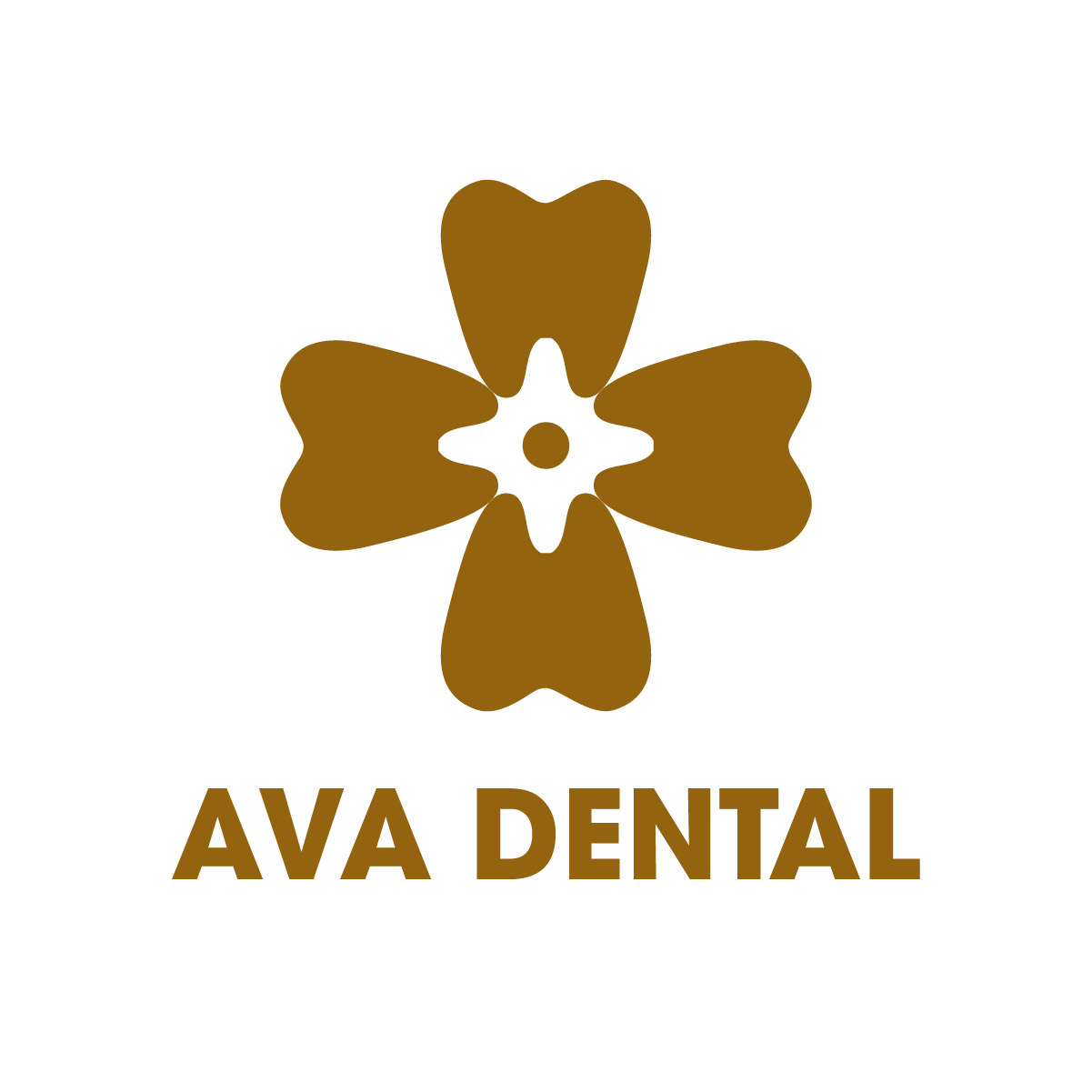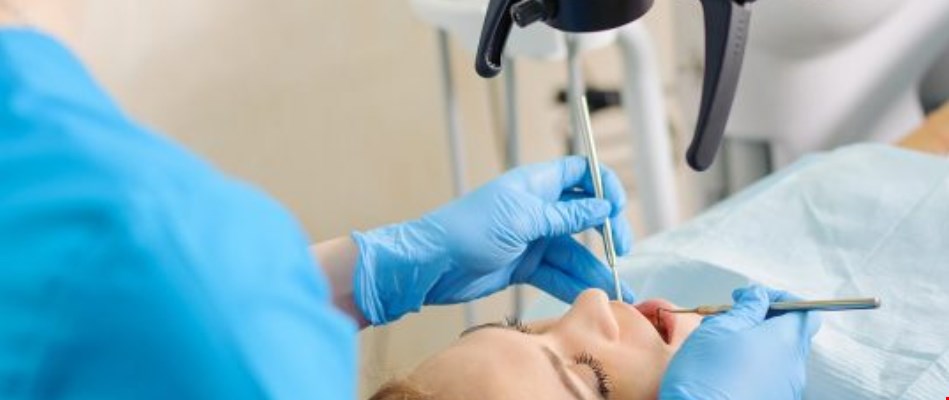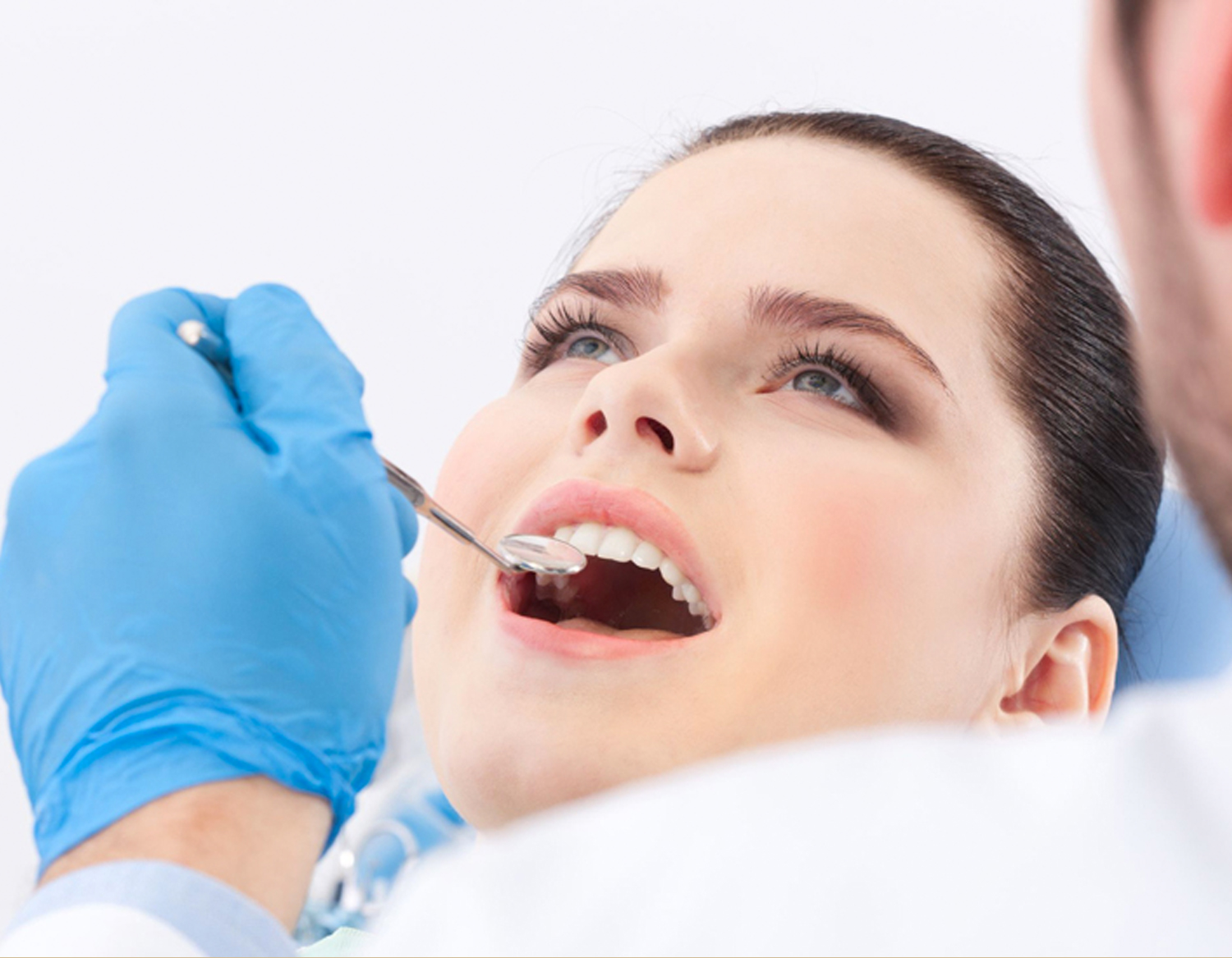Dental implants are slowly becoming a popular solution to replace permanently lost teeth, leading to sinus lifts becoming more popular as well. This means understanding and implementing a sinus lift aftercare is very important as it directly affects the success of subsequent dental implants. Pain, complications of infection, and swelling can be involved if the instructions are followed carefully. Follow the instructions below to better understand the sinus lift aftercare procedure.
Sinus lift recovery time
Immediately after sinus lift surgery, you may experience swelling in the area being treated. Also, blood may flow slightly from the mouth or nose. You may feel some discomfort for a few days afterward, but don’t worry, your doctor will prescribe pain medication and antibiotics after the surgery is complete to reduce pain and prevent infection. However, in some special cases, if any bleeding continues for more than two days, or the pain and swelling get worse, you should contact your dentist immediately.
You will have to be careful not to sneeze or blow your nose a lot as this can move the sinus lift material or loosen your stitches. In case you are prone to seasonal allergies or allergies to external influences, your surgery should be discussed with your doctor in advance to arrange surgery at an appropriate time of the year, avoiding side effects. may happen later.
Around 7-10 days after surgery, you will need to return to the clinic so the doctor can check the healing progress and remove the stitches if they have not resolved. In addition, you will have a number of follow-up visits during the healing process until the wound is completely healed and the dental implants plan is scheduled afterward.
What is expected in the sinus lift aftercare procedure?
Proper sinus lift aftercare procedure is critical to the long-term success of the dental implant treatment as well as helps minimize swelling, pain, and infectious complications.
Sinus lift aftercare immediately after the surgery
- After the sinus lift surgery, the doctor will place a piece of gauze over the surgical area to stop bleeding and protect the wound. You should keep the gauze in place for 30 minutes afterward and change the bandage regularly until the bleeding has subsided. It will take 45 minutes to an hour for the blood to gradually reduce to a drip.
- Avoid gargling too hard or touching the wound area immediately after surgery because this will injure the wound and cause more bleeding or the blood clot may be dislodged. Ideally, you should only wash the wound gently starting the night of the surgery.
- Do not blow your nose under any circumstances for the next 4 weeks or longer if directed by your doctor until the wound is completely healed. If you must sneeze, sneeze through your mouth. This also takes effect for about 4 weeks.

- Take a pain reliever prescribed by your doctor when you start to feel discomfort, usually after the local anesthetic wears off.
- Limit your usual activities on the day of surgery and resume normal activities when you feel comfortable. It will take 7 to 10 days before you feel normal again and resume intense physical activity and normal eating.
- If you suddenly sit up or stand from a lying position, you may experience dizziness. You should sit up 1 minute before standing up to have time to calm down.
Bleeding during sinus lift aftercare time
Bleeding or redness in the saliva is normal and is a normal response for 24 hours after sinus lift surgery. In case of excessive bleeding, you need to clean up old blood clots in the mouth if any, then bite a gauze pad placed directly on the bleeding wound for 30 minutes to control them. You can also change the dressing every 30 minutes if needed. The new gauze should be moistened with cold water, wring it out until it is slightly damp, then put in the mouth.
If bleeding continues, bite into the damp tea bag for 30 minutes. The tannic acid in the tea bags constricts the blood vessels, helping to form blood clots. At the same time, you should sit up straight and avoid movement. If the bleeding continues to be excessive, please contact us for further instructions.
Swelling during sinus lift aftercare time
Swelling is normal after sinus lift surgery. The degree of swelling depends on the complexity of the surgery and varies from case to case. To minimize this problem, you can apply an ice pack to the cheek where the surgery was performed. Ice should be used for 20 minutes, then 20 minutes off, and repeated in the first 48 hours. Typically, swelling will grow to a peak in 48-72 hours and then subside over the next 3-5 days. After this time, if the swelling continues to get worse, please contact our doctor immediately.
Pain during sinus lift aftercare time
Before the local anesthetic wears off, you should use a pain reliever to avoid pain. For moderate pain, Ibuprofen (Advil or Motrin) can be taken. 3 – 4 tablets can be taken every 6 – 8 hours as needed for pain relief. Note, do not take more than 3200 mg in 24 hours. For severe pain, it is necessary to take narcotic pain relievers as prescribed by the doctor. In case you are allergic, as a patient with liver/kidney disease, you should stop all the medicines mentioned above.
Prescription pain relievers will sometimes make you dizzy and slow down your reflexes. Do not drive a car or travel long distances alone. At the same time, you need to avoid alcoholic beverages because they will increase the effect of the anesthetic.
Discoloration during sinus lift aftercare time
In some cases of the sinus lift aftercare procedure, the patient’s skin may change color after swelling. This is because blood spreads underneath the tissues, causing the skin to turn black, blue, green, or yellow. Do not be too worried, this is a normal phenomenon, and may occur 2-3 days after surgery. If you experience this, you should apply moist heat to the discolored area to remove the discoloration.
In younger patients, bruising is rare and is sometimes manifested by a slight yellow discoloration due to the ease of circulation at this age. In contrast, in older patients, especially the elderly, bruising may be more frequent and manifest as a bluish-black discoloration.
Antibiotics during sinus lift aftercare time
During sinus lift aftercare time, your doctor will prescribe antibiotics for you to stop the infection. Make sure to take your medicine exactly as prescribed, and be sure to finish the entire prescription even if you feel well again. In case you develop a rash or other adverse reaction to the medication, stop taking it immediately and notify us for prompt treatment.

Usually, antibiotics will change your digestive tract, sometimes taking antibiotics with yogurt can help prevent diarrhea. Note, if you are taking birth control pills, keep in mind that antibiotics can make them less effective.
Nausea and vomiting during sinus lift aftercare time
In case you experience nausea and/or vomiting after sinus lift surgery, do not take anything by mouth for at least an hour including prescribed medications. Instead, you should sip cups, tea, or ginger beer to reduce this uncomfortable feeling. You should sip slowly over a fifteen-minute period. Once nausea subsides, you can start taking solid foods and taking prescribed medications. If the feeling of nausea does not subside within 3 hours, please contact us immediately for timely handling.
Other complications during sinus lift aftercare time
- Body temperature may rise slightly in sinus lift aftercare time. Tylenol or ibuprofen are two medications you can use to lower a fever. If the temperature continues to rise, please notify us so we can guide you.
- If the corners of your mouth are stretched because the surgery is deep inside your mouth, they can dry out and crack. Moisten your lips with an ointment like Vaseline or some other lotion.
- Sore throat and pain when swallowing due to swollen muscles. However, this should subside after 2-3 days.
- Tight jaw muscles can make it difficult to open your mouth for a few days after surgery. Instead of trying to force your mouth open, massage the muscles and apply heat to get the mouth muscles working properly.
- Your doctor may suture the wound after surgery with absorbable sutures to minimize bleeding and help the wound heal. Sometimes they become sporadic, at this point, you just need to take the suture out of your mouth and remove it. Note, that sutures will dissolve on their own about a week after surgery. If it doesn’t go away on its own, you can go back to the clinic to have the suture removed.
- If you engage in regular exercise, we recommend taking at least a few weeks off from any vigorous physical activity. Once the wound has really healed, start with a light to moderate exercise and gradually increase the regimen over several sessions.
- Snorkeling and air travel can increase sinus pressure and should be avoided when possible. In case of necessity, you can use a decongestant such as Drixoral, Dimetapp, or Sudafed to relieve pressure in the sinuses.
- Avoid bending over to lift heavy objects, blowing balloons, playing an instrument that requires blowing, or any other activity that increases nasal or mouth pressure. These activities can be resumed 2-3 weeks after surgery.
- Smoking must be stopped because it can not only infect the wound but also have a strong impact on the sinuses and nose when performing the act of smoking and releasing smoke.
- If you are having a denture at the time of surgery, you should try to leave it in place for at least 24 hours after surgery. The denture tends to act like a Band-Aid. After that time, you need to remove and rinse your mouth gently and clean the denture with water because if left for a long time, it can cause swelling. You will need to make an appointment with your doctor within a few days of surgery to make any necessary adjustments to your dentures.
- There may be a temporary loss of sensation in the gums around the surgical area. Teeth can also become loose for a while and be sensitive to heat and cold. However, this is only a temporary effect.
Oral hygiene during sinus lift aftercare time
Proper oral hygiene is essential for wound healing. You should rinse your mouth with warm salt water at least 4-5 times a day, especially after meals.
When brushing, do not brush 2 adjacent teeth on either side of the graft site for 5 days. After 5 days, you can gently brush the tooth surface of the adjacent teeth. Note that you should use a brush with soft bristles and make sure that the bristles do not disturb the grafting position.
Do not gargle with any force. Gently fill your mouth with water and let it swirl around then release it into the sink. Do not spit as this tends to disrupt blood clotting, open the wound, and can prolong bleeding time and slow healing.
Foods and drinks during sinus lift aftercare time
You should drink plenty of fluids in sinus lift aftercare time to prevent dehydration. Your daily food intake will be limited for the first few days. You should compensate for this by drinking at least 5-6 glasses of fluids per day. Furthermore, staying hydrated can also help prevent nausea and vomiting.
Avoid hot liquids and foods as well as hard, crunchy foods like nuts, popcorn, sunflower seeds, and any other foods that can get trapped underneath the tissue inside the surgical site. Instead, you should choose soft and liquid foods such as porridge, soup, yogurt, milkshakes/smoothies, ice cream/sorbet, pasta, mashed potatoes, etc.

Do not use a straw but drink from a glass because suction can cause more bleeding. When chewing try to avoid chewing directly on the surgical area.
High calorie and protein intake are important. Nourishing should be done regularly to help you feel better and heal faster. We recommend a calorie supplement such as Ensure or similar products. Mixing Ensure products with ice make them taste better, and ice often soothes tissues.
Activity during sinus lift aftercare time
Limit physical activity to a minimum immediately after surgery. If you are exercising, stinging or bleeding may occur. You should stop exercising immediately. Moreover, you are not taking the usual nutrients as usual, so it is possible that your health will weaken. Ideally, you should avoid exercise and/or any strenuous activity or exercise for 5-7 days after surgery. Remember, slowly returning to your normal daily activities is the most sensible approach.
Sinus lift aftercare tips
Sinus lifts are performed to increase the thickness of the jawbone, serving the subsequent dental implant. You need to follow the sinus lift aftercare instructions listed below carefully to minimize the possibility of a sinus lift failure:
- Do not blow your nose for at least 7 days after surgery because the pressure will slow or damage your sinus healing. When you have to sneeze, don’t hold back, sneeze out. Open your mouth and try to minimize the pressure in the nasal passages/sinus as much as possible.
- You can use a decongestant, such as over-the-counter Sudafed tablets or Afrin nasal spray to keep your nostrils dry, especially if you notice continued discharge or feel the need to blow. nose.
- Take the antibiotics prescribed by your doctor until the prescription is over, even if you feel fine again. Yogurt or an acidophilus probiotic tablet is recommended daily to reduce gastrointestinal complications (diarrhea) caused by the side effects of antibiotics.
- Do not drink water through a straw. This creates suction, which can damage the healing clot. You can drink from a cup or bowl or use a spoon.
- Don’t smoke because smoking reduces blood flow, infects a healing wound, and often leads to infection.
- If you have had a sinus lift or implant placed in the upper back of your jaw, please clean it very gently and rinse your mouth with the medicated mouthwash provided.
- Do not use the Waterpik/Air flosser.
- Avoid touching the injured area.
- Avoid flying for 2 weeks after dental surgery.
- Avoid strenuous exercise for 2 weeks after surgery (running/gym).
- Scuba diving and flying in pressurized aircraft can also increase sinus pressure and should be avoided.
- Avoid bending over, such as when lifting heavy objects, blowing balloons, playing an instrument that requires blowing movements, or any other activity that increases nasal or mouth pressure.
At Ava Dental, you can have a sinus lift procedure done in the safest way. Follow the instructions for the sinus lift aftercare before our special dental implants will ensure you get your smile back.
You can request an appointment online, call us at our hotline or fill out the appointment online form to learn more about our sinus lift procedures or dental implant options.
Hotline: 0868.134.138 – 0346.134.138
>>>>> View more: Ava Dental Clinic Fanpage


